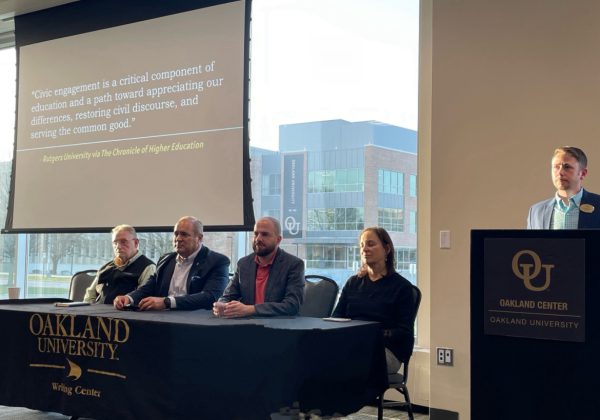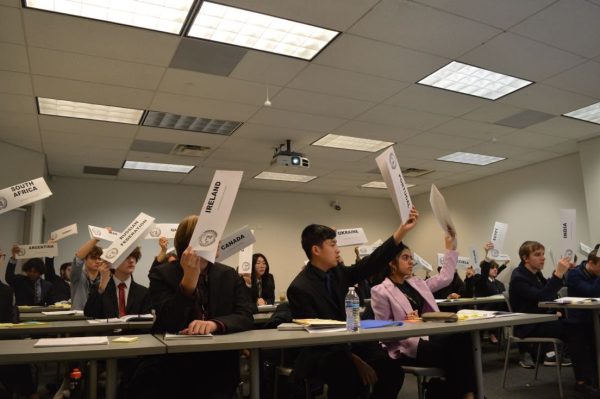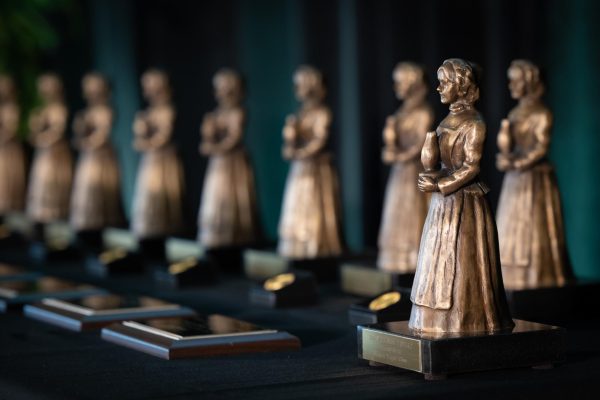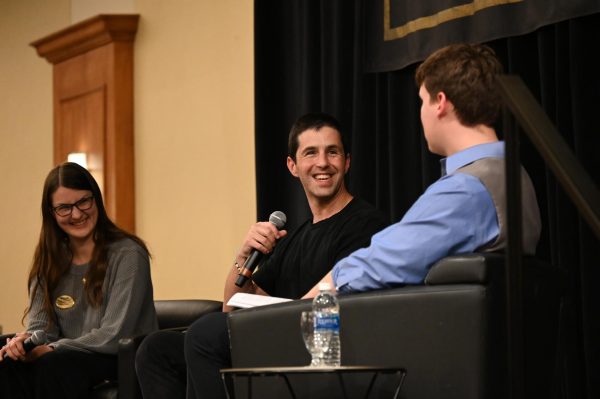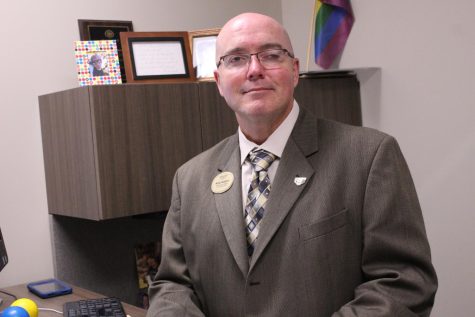Film festival to address transgender, gender-noncomforming issues
The Women and Gender Studies Program at Oakland University will be holding its 33rd annual film festival on Saturday, Jan. 21. This year, a documentary titled “Suited” will be played, telling the story of Bindle & Keep, a tailoring company in Brooklyn that caters to transgender and gender-nonconforming clients.
There will be a discussion following the film featuring four guest speakers:
- Dr. Kathleen Battles, associate professor in the Department of Communication and Journalism
- Jacob Semma, student assistant at the OU Gender and Sexuality Center
- Morgan Shaw-Andrade from Transcend the Binary in Ferndale
- Aiden Ramirez-Tatum of the Spectrum Center at the University of Michigan
“I hope that people will ask respectful questions that will help them gain knowledge and understanding of LGBTQ issues,” Semma said. “I think that students will gain a unique perspective into the lives of the LGBTQ community, at least in terms of navigating clothing, but hopefully in terms of just navigating everyday life.”
Ami Harbin, one of the planning committee members, said that anywhere between 150 and 200 people come out in support of the film festival each year.
“It [the film, ‘Suited,’] opens up a number of important discussions about how all of us come to know our gender,” Harbin said. ” . . . how other people and relationships affect how we experience our genders, what happens when our sense of gender is not the same as how others see us, and what kinds of things out in the world can make it possible for all of us to feel supported in our gender identities.”
Harbin explained that the film talks about the ways that clothing allows for people to present themselves in a way that represents their gender.
“Part of why the film is so moving is because it shows how even something as simple as an outfit can help us feel more like ourselves,” Harbin said. “There are a number of gorgeous scenes where we see people who have for a long time felt uncomfortable in their own skin . . . suddenly feel much more at ease and comfortable just because they have been given an outfit that reflects who they really are.”
This year, OU has made attempts to allow trans students to feel and reflect who they are officially. A new preferred name policy was unveiled in the fall semester, allowing students to change their names on MySail and Banner.
Harbin discussed how university campuses can allow for transgender students, staff and faculty to feel welcomed in the everyday workings of the campus community. She listed some of the most important policies that a university should have to create a welcoming space:
- Having preferred name and pronoun policies that allow for in-class and on-record use
- Having gender-neutral bathrooms accessible in every building
- Having clear policies that allow for protection for transgender students using bathrooms
- Having open and welcoming medical care and counseling services that have professionals trained in the medical needs of the LGBTQIA+ community
- Having classes and programs for students to learn about oppression within society that harms people in trans communities, and having these courses talk about the accomplishments of the trans community
- Having faculty who are committed to ensuring the success of trans students
Semma hopes that the movie and discussion will help bring awareness to some of these issues.
“I think that people should know that gender is socially constructed, and there are people that are all over the spectrum of gender,” he said. “I hope to talk about my experience as a trans man when it comes to health care, media representation, university life and, overall, my experience. I want to be able to bring attention to the trans experience, especially of those who are not as privileged as I am.”




